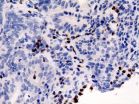(Press-News.org) BOSTON -- Antidepressant medications taken by pregnant women are associated with increased rates of preterm birth. This finding reinforces the notion that antidepressants should not be used by pregnant women in the absence of a clear need that cannot be met through alternative approaches, say researchers from Brigham and Women's Hospital, Vanderbilt University, MetroWest Medical Center, and Tufts Medical Center.
"Preterm birth is a major clinical problem throughout the world and rates have been increasing over the past two decades. At the same time, rates of antidepressant use during pregnancy have increased approximately four-fold," says lead author Krista Huybrechts, MS PhD, from the Division of Pharmacoepidemiology and Pharmacoeconomics at Brigham and Women's Hospital and Harvard Medical School. "Therefore it is essential to determine what effects these medications have on pregnancy."
Huybrechts and colleagues conducted a systematic review and meta-analysis of published studies that evaluated women who took antidepressants during pregnancy and had information on gestational age at birth. The results appear online in the journal PLOS ONE.
"We studied 41 papers on this topic and found that the available scientific evidence is becoming clearer that antidepressant use in pregnancy is associated with preterm birth," says senior author Adam Urato, MD, a Maternal-Fetal Medicine specialist at Tufts Medical Center and MetroWest Medical Center. "The complication of preterm birth did not appear to be due to the maternal depression but rather it appears likely to be a medication effect."
"Several of the studies in this review controlled for maternal depression and these studies continued to show increased rates of preterm birth in the antidepressant exposed pregnancies," adds Reesha Shah Sanghani MD, MPH, from Vanderbilt University.
"It is important to keep in mind, however, that the issue of treatment of depression during pregnancy is complex and that there are many factors to consider. Pregnant women and their providers need to weigh many issues," says Urato. "It is crucial, though, that the public gets accurate information on this topic."
Rates of preterm birth have been increasing over the past two decades and it is a major public health concern. Children born preterm have higher infant mortality rates than full-term babies and surviving infants are at increased risk of health problems ranging from neurodevelopmental disabilities such as cerebral palsy and intellectual delays to other chronic health problems like asthma. Costs to society have been estimated to be as high as $26.2 billion per year in the US.
Of the 41 studies which the authors reviewed, the majority showed increased rates of preterm birth in patients taking antidepressants. The association was strongest with use in the third trimester. There was no evidence of a beneficial effect or reduction in preterm birth with antidepressant use.
"Preterm birth is the leading cause of infant death and it is also a major contributor to both short and long-term illness," says Urato. "While very preterm infants have the highest risk, we now know that even later preterm birth is associated with significant increases in neonatal morbidity and mortality."
"Pregnant women with depression need proper treatment and our results should not be seen as an argument to ignore depression in these patients," says Huybrechts. "These drugs may be necessary in some pregnant women with severe depression in whom other approaches are inadequate. However, for many others, non-drug treatments, such as psychotherapy, will help, and aren't associated with complications like preterm birth."
INFORMATION:
Huybrects, K; Urato, A; Shah Sanghani, Reesha MD, MPH of Vanderbilt University and Avorn, Jerry MD of Brigham and Women's Hospital: "Preterm birth and antidepressant medication use during pregnancy: A systematic review and meta-analysis," published online ahead of print March 26, 2014, http://dx.plos.org/10.1371/journal.pone.0092778.
Antidepressants during pregnancy linked to preterm birth
2014-03-27
ELSE PRESS RELEASES FROM THIS DATE:
Patient satisfaction scores in the ER are not affected by receipt of painkillers
2014-03-27
WASHINGTON — Factors other than receipt of painkillers – including opiates – in the emergency department appear to be more important to patient satisfaction, as reflected in an analysis of Press Ganey® patient surveys to be published online today in Annals of Emergency Medicine ("Lack of Association between Press Ganey® Emergency Department Patient Satisfaction Scores and Emergency Department Administration of Analgesic Medications").
"The lack of connection between painkillers and patient satisfaction is frankly the opposite of what we expected to find," said lead ...
Adult cancer drugs show promise against an aggressive childhood brain tumor
2014-03-27
(MEMPHIS, Tenn. – March 27, 2014) The quest to improve survival of children with a high-risk brain tumor has led St. Jude Children's Research Hospital investigators to two drugs already used to treat adults with breast, pancreatic, lung and other cancers. The study was published today online ahead of print in the journal Cancer Cell.
Researchers demonstrated that the drugs pemetrexed and gemcitabine killed cells from mouse and human brain tumors, called group 3 medulloblastoma, growing in the laboratory. Medulloblastoma is diagnosed in about 400 children annually in ...
NJIT mathematician releases 2014 Major League Baseball projections
2014-03-27
As Opening Day rapidly approaches for most Major League Baseball teams, NJIT Associate Professor of Mathematical Sciences Bruce Bukiet has prepared his annual MLB projections for the upcoming season. And, to the chagrin of loyal Mets fan Bukiet, New York's National League club looks to be in store for a disappointing year. Bukiet, who developed a mathematical model for calculating expected MLB win totals that was published in Operations Research, forecasts a mere 68 wins and a last-place finish for the Metropolitans.
Bukiet's model can be used to project the number of ...
Congress budget pact good for global health but NIH cuts threaten US innovations
2014-03-27
Washington, DC (March 27, 2014)—While a ceasefire in Washington's budget wars has restored funding for a range of programs targeting global health threats like AIDS and tuberculosis (TB), the simultaneous underfunding of the world's biggest sponsor of global health research and development (R&D) puts future progress at risk, warns a new report from a coalition of nonprofit groups focused on advancing innovation to save lives. The Global Health Technologies Coalition (GHTC) released their annual policy report today at a Capitol Hill briefing.
"The end of political gridlock ...
Big brown bat males call 'dibs' on food
2014-03-27
VIDEO:
This is an animation of a recording from a trial with two male bats competing for prey. Red and blue each represent a bat (red = GR41 and blue =...
Click here for more information.
As big brown bats wake up from their winter slumber and start zooming around in pursuit of insects to eat, how do they coordinate their activities in the dark of night? For one thing, according to researchers who report their findings on March 27 in the Cell Press journal Current Biology, males ...
The multiplication of cells under close observation
2014-03-27
Our cells must grow and divide optimally to ensure that our bodies functions properly. It is essential, however, that these processes are carefully controlled in order to prevent unrestrained proliferation that can lead to the formation of tumours. David Shore, a professor at the Faculty of Sciences, University of Geneva (UNIGE), Switzerland, and his team have uncovered a cellular factor that regulates the timing of DNA replication. This molecule, called Rif1, ensures that only a fraction of the origins of DNA replication is activated at specified times of the cell cycle. ...
Scientists find potential target for treating mitochondrial disorders
2014-03-27
CAMBRIDGE, Mass. (March 27, 2014) – Mitochondria, long known as "cellular power plants" for their generation of the key energy source adenosine triphosphate (ATP), are essential for proper cellular functions. Mitochondrial defects are often observed in a variety of diseases, including cancer, Alzheimer's disease, and Parkinson's disease, and are the hallmarks of a number of genetic mitochondrial disorders whose manifestations range from muscle weakness to organ failure. Despite a fairly strong understanding of the pathology of such genetic mitochondrial disorders, efforts ...
In mapping feat, Scripps Florida scientists pinpoint neurons where select memories grow
2014-03-27
JUPITER, FL – March 27, 2014 – Memories are difficult to produce, often fragile, and dependent on any number of factors—including changes to various types of nerves. In the common fruit fly—a scientific doppelganger used to study human memory formation—these changes take place in multiple parts of the insect brain.
Scientists from the Florida campus of The Scripps Research Institute (TSRI) have been able to pinpoint a handful of neurons where certain types of memory formation occur, a mapping feat that one day could help scientists predict disease-damaged neurons in humans ...
Foraging bats can warn each other away from their dinners
2014-03-27
VIDEO:
In this animated graphic of bats' calls in flight, two bats are represented by different colors, red and blue. The bats' movements and vocalizations have been slowed by a factor...
Click here for more information.
Look into the spring sky at dusk and you may see flitting groups of bats, gobbling up insect meals in an intricately choreographed aerial dance. It's well known that echolocation calls keep the bats from hitting trees and each other. But now scientists have learned ...
Researchers at IRB discover a key regulator of colon cancer
2014-03-27
Barcelona, Thursday 27 March 2014.- A team headed by Angel R. Nebreda at the Institute for Research in Biomedicine (IRB) identifies a dual role of the p38 protein in colon cancer. The study demonstrates that, on the one hand, p38 is important for the optimal maintenance of the epithelial barrier that protects the intestine against toxic agents, thus contributing to decreased tumour development. Intriguingly, on the other hand, once a tumour has formed, p38 is required for the survival and proliferation of colon cancer cells, thus favouring tumour growth. The study is published ...




